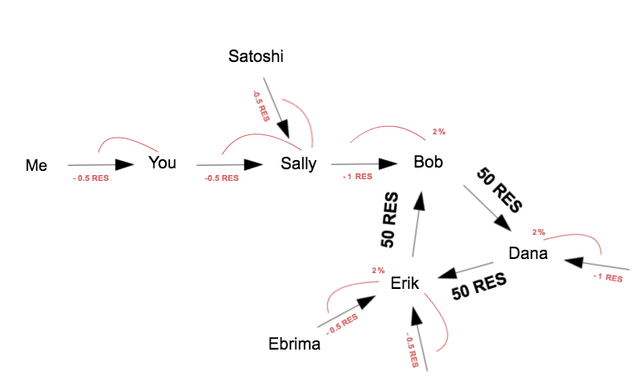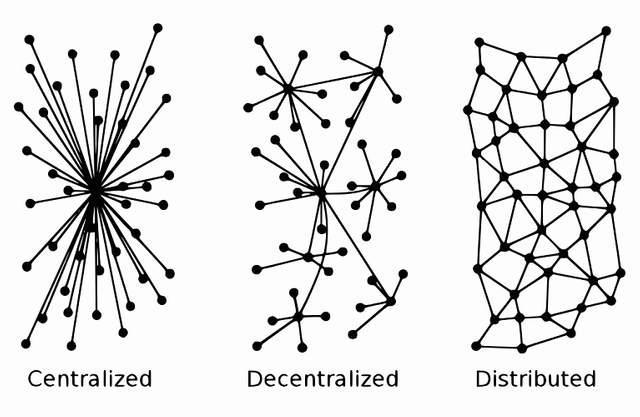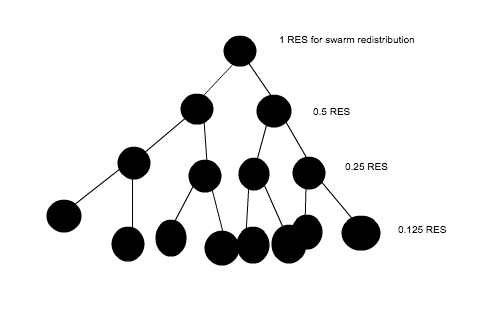Resilience is a medium where debt is person-to-person, built on Ryan Fugger's path-finding mechanism Ripple, and gradually forgiven through "swarm redistribution", similar in some ways to demurrage and Charles Eisenstein's ideas, providing a safety net similar to universal basic income.
The “swarm redistribution” is triggered when credit is cleared in a circle, similar to a value added tax, managed with Ryan Fugger’s path-finding algorithm Ripple, and the “pulse” then propagates person-to-person, symmetric, each person forgiving an equal amount of debt to what they have been forgiven, paid for by those whose credit was cleared (the “labour force”), and the balances are always only adjusted between people who actually trust one another.

With symmetric swarm redistribution, the more evenly trust lines are distributed in the network, the more evenly each person receives swarm redistribution, so it is up to people to organize their trust in a way where everyone is covered.
The design is very very fast, and scales very easily, and has no problem with fake accounts, and works well with person-to-person ledgers like what https://holochain.org talks about.
So with symmetric swarm redistribution, if trust lines are distributed evenly between people, then the amount of swarm redistribution each person gets approximate equal distribution.

On the other hand, if it is very hierarchical, it does not (see image. ) The percentage that is sent for swarm redistribution, "trust index", would shape how hierarchical trust becomes, from 0% (very hierarchical) to 100% (entirely flat, gift economy. )

wow really nice post.
Downvoting a post can decrease pending rewards and make it less visible. Common reasons:
Submit
interesting way of explaining that with info graphics thanks for sharing
Downvoting a post can decrease pending rewards and make it less visible. Common reasons:
Submit